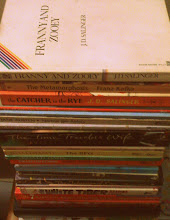With a feeling of incredible guilt for letting procrastination get the better of me, I am writing this post while vowing to myself that from today onward, I shall write a post every week.
 One of the first things I did after starting university was to get a library card made. In college we weren't allowed to issue books which led me to steal one of the novels (for two weeks only, in my defense). It was rightfully returned to its shelf once I had devoured it. :) So to prevent the burden of another theft, I quickly got my card made and the first book I issued was ''The Essential Rumi'', complied and translated by Coleman Barks.
One of the first things I did after starting university was to get a library card made. In college we weren't allowed to issue books which led me to steal one of the novels (for two weeks only, in my defense). It was rightfully returned to its shelf once I had devoured it. :) So to prevent the burden of another theft, I quickly got my card made and the first book I issued was ''The Essential Rumi'', complied and translated by Coleman Barks.  For those who are not familiar with this great philosopher of the 13th century; Jalāl ad-Dīn Muḥammad Rūmī was a Muslim Poet and Sufi mystic and scholar. He is one of the most widely read poets all over the world and rightly so since his work encompasses a wide array of spiritual elements and the fluidity of thought in his poetry is such that its fascinating in its simplicity of truthful narration as well as being universally appealing.
For those who are not familiar with this great philosopher of the 13th century; Jalāl ad-Dīn Muḥammad Rūmī was a Muslim Poet and Sufi mystic and scholar. He is one of the most widely read poets all over the world and rightly so since his work encompasses a wide array of spiritual elements and the fluidity of thought in his poetry is such that its fascinating in its simplicity of truthful narration as well as being universally appealing. Often his poetry is a narration of events with enlightening morals. He talks about God and His prophets, his master Shams and his disciple Husam, the pleasures of silence and the longing to reunite with ones roots amongst a host of other topics which are always somehow intertwined with spirituality.
 Rumi believed music, dancing and poetry were some of the ways to achieve nearness to God. This belief led him to become the founder of the 'Whirling dervishes' an act we've seen many time.
Rumi believed music, dancing and poetry were some of the ways to achieve nearness to God. This belief led him to become the founder of the 'Whirling dervishes' an act we've seen many time. 'We don't read and write poetry because it's cute. We read and write poetry because we are members of the human race. And the human race is filled with passion. And medicine, law, business, engineering, these are noble pursuits and necessary to sustain life. But poetry, beauty, romance, love, these are what we stay alive for.'- Rumi
“Let the beauty we love be what we do. There are hundreds of ways to kneel and kiss the ground.”
― Rumi
― Rumi
“The minute I heard my first love story,
I started looking for you, not knowing
how blind that was.
Lovers don't finally meet somewhere.
They're in each other all along.”
― Rumi, The Illuminated Rumi
I started looking for you, not knowing
how blind that was.
Lovers don't finally meet somewhere.
They're in each other all along.”
― Rumi, The Illuminated Rumi
“When I am with you, we stay up all night.
When you're not here, I can't go to sleep.
Praise God for those two insomnias!
And the difference between them.”
― Rumi
When you're not here, I can't go to sleep.
Praise God for those two insomnias!
And the difference between them.”
― Rumi
"You were born with wings, why prefer to crawl through life?”
― Rumi
My earliest memory of the whirling dervishes goes way back to when I was twelve years old. A music video showing men dancing in circles with bellowing ivory frocks, eyes closed, arms raised in joy and without a care in the world just going round in round in circles captivated me. I remember standing up from the couch and mimicking the flawless rhythmic rotations of the whirling dervishes on screen. At first I went around in circles like a madman, I whirled and whirled and laughed but within a few seconds I closed my eyes and slowed my pace to the somber tune of the music. I remember feeling at peace. The reason I remember this event is because when I opened my eyes once the song ended, I saw my mom looking at me and letting out a surprised laugh.
And ever since, Ive been mesmerized by them.
The order of the Whirling Dervishes is an act of love, a means to forget this world and immerse oneself in the journey towards God. No wonder Rumi said:
"Let the lover be disgraceful, crazy, absent-minded. Someone sober will worry about things going badly.
Let the Lover be."











